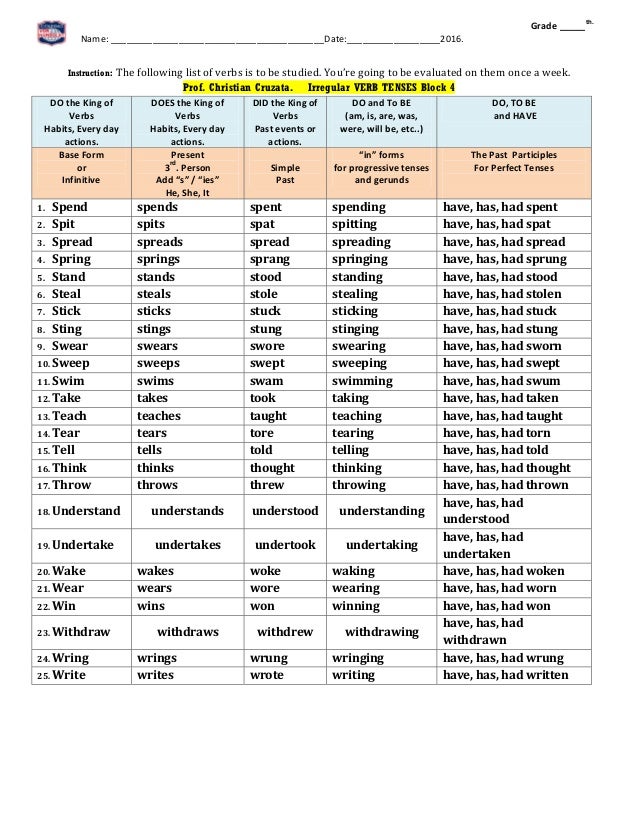

Smrt english irregular verbs how to#
There's no real trick to learning how to use irregular verbs. So, if you're learning or teaching English, you must embrace them.

Somewhat counter-intuitively, the most common verbs in English are irregular. Here is a Venn diagram that explains how verbs are classified: Similarly, the terms "regular verb" and "weak verb" are not synonyms. The terms "irregular verb" and "strong verb" are not synonyms (i.e., they do not mean the same). Infographic Explaining Strong, Weak, Regular, and Irregular Verbs Here are some examples of strong and weak irregular verbs: Irregular Verbs Can Be Strong or Weak VerbsĪn irregular verb can be either a weak verb (when its past forms end "–d" or "-t") or a strong verb. bend bent: He bent over to pick up the newspaper. (Irregular Verbs) since the two forms are used in both BrE and AmE to varying degrees. Some irregular verbs do not change their forms for the simple past tense and the past participle: The following is a list of 101 Irregular Verbs in the Past Tense with example sentences in English: Present tense Past Tense: Example Sentence Be was/were: They were happy. the rationale and general aims of Fundamentals of English Grammar. Other contents: Past Simple and Past Participle. School subject: English as a Second Language (ESL) Grade/level: 5º Primaria. learnt, dreamt) is more common in British English. 25 Irregular verbs practice in alphabetical order with Past Simple and Past Participle. The following verbs can be regular or irregular: Listed below are the most common irregular verbs in English: The Most Common Irregular Verbs in English Now, compare those irregular forms with those of regular verbs, which just add "-ed" or "-d": With an irregular verb, the past form and past participle are often different (but not always). It is somewhat ironic that the most regularly used verbs in English are irregular. Use the buttons to form the past tense and then the participle of the irregular verb shown. (There are spelling rules to consider when forming the simple past tense or past participle of a regular verb.) Irregular verbs contrast with regular verbs, which form the simple past tense and past participle by adding "-ed" or "-d." What Are Irregular Verbs? (with Examples)Īn irregular verb is one that does not form its simple past tense or its past participle by adding "-ed" or "-d" to the base form.


 0 kommentar(er)
0 kommentar(er)
